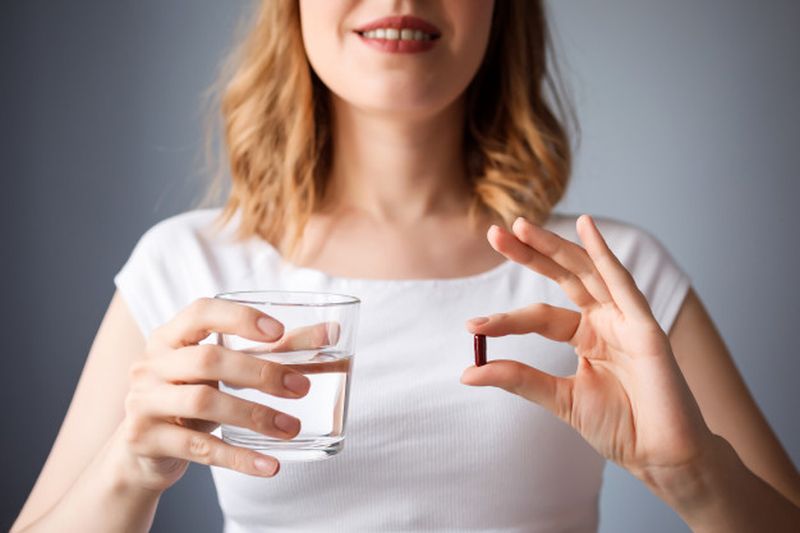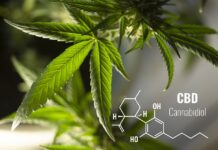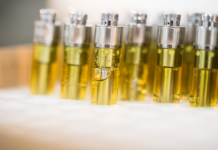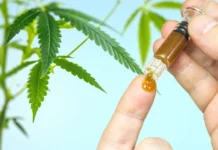What exactly do we mean when we refer to capsules? Are capsules the same as pills? Some people use the two terms interchangeably, but in fact, capsules and pills are quite different from each other.
The capsules used for CBD (cannabidiol) are soluble shells that are generally made from gelatin. This is why they’re referred to as softgels. Capsules are filled with CBD oil or CBD isolate powder, which is a pure, concentrated form of the compound.
CBD pills, in contrast, are solid. CBD isolate is what can be found in pills, because raw or full-spectrum CBD cannot be compressed into a solid.
For the purposes of this article, we’ll be examining the advantages and disadvantages of capsules, not pills.
The advantages of CBD capsules

1. CBD capsules are easy to take
You can swallow one or two with a little water virtually anywhere, at any time. They are especially convenient for traveling, and particularly so if you’re traveling by air, when the amount of liquids you can take with you is limited by TSA rules. If you’re bringing CBD oil with you on a plane, you must include the amount in the total that is allowed. Capsules are under no such restrictions.
Even if you’re only traveling as far as the office, or to a picnic or a party, tucking a container of CBD capsules into your purse or bag means that you’ll have a handy, discreet way of taking the dose you want without having to explain what you’re doing to anybody. Measuring CBD oil in a dropper involves more effort and visibility.
What also makes CBD capsules convenient is that you don’t need any special equipment to take them. In order to inhale CBD as a vapor, you’ll need a vape pen and a cartridge filled with CBE vape oil or juice to insert into the pen. You could also use a vape mod that has been modified to produce more vapor than a vape pen; or a dab rig which filters the CBD concentrate through water.
2. It is easy to get an accurate dose
CBD softgels come in potencies ranging from 10 mg to 250 mg per capsule, giving people a great many options. Choosing a CBD strength and then taking the correct number of pills to reach that number is simple. Getting the precise measurement in a dropper is a bit more challenging, as is determining the amount of CBD you are getting when you vape it. If you want to take CBD softgels, you should start by taking one 10 mg capsule twice a day and see if it a) does what you want it to do (i.e., alleviates pain) and b) does not cause an adverse reaction. Studies have confirmed that CBD is well tolerated by most people, with minimal side effects. Still, introducing any new element into your health care routine should be done carefully. If your body is reacting well to the small amount but you’d like to increase the effects, you can ramp up the dosage.
3. It doesn’t have the flavor that CBD oil has

Due to the terpenes and other compounds in the hemp from which the CBD was derived, CBD has an earthy taste and pungent aroma that do not appeal to everyone.
4. The effects tend to last longer
On average, the effects of CBD last from two to six hours, but those times vary widely depending upon the intake method used. Some studies have found that CBD that’s consumed orally stays in the body for more than four hours. Of course, due to variations in metabolism and weight, CBD affects everyone differently.
5. There is no potential harm to the lungs
The growing number of people who are opting to inhale their CBD as a vapor rather than swallowing it as an oil or pill has health experts concerned about the potential for lung damage from vaping. The 2,000+ cases of serious lung illness caused by vaping that began emerging in August 2019 added to those concerns. However, in that outbreak, the FDA reported that most of those hospitalized with the lung illness had vaped with THC (the psychoactive ingredient in marijuana) or nicotine. Whether or not vaping CBD poses a risk to the lungs is still being studied. With pills, naturally, that is not an issue.
Disadvantages of CBD capsules

1. It takes longer for you to feel the effects
CBD affects everyone differently but in general, it can take up to an hour to feel the effects of stirlingcbdoil.com and somewhat less for CBD drops to kick in. That is primarily because the gelatin shell of the capsule must dissolve, while the CBD drops enter the body with no such hindrances. CBD tinctures take effect within 15 to 30 minutes of being ingested. Vaping is also much speedier than capsules, with the effects being felt in mere minutes.
These differences stem from the fact that with oral delivery methods, the CBD must be processed by the digestive system and broken down by the liver before it is sent into the bloodstream, which allows it to take effect. With vaping, the CBD goes directly into the lungs and then to the bloodstream, bypassing the digestive system and the delay it causes.
2. CBD capsules have less bioavailability
Bioavailability refers to how much of a substance that enters the body is actually able to be absorbed and used. This mainly depends upon the delivery method. The only way any drug can have a bioavailability of 100% is if it is injected. For our purposes, it is useful to know that CBD has a fairly high bioavailability when vaped, and a low level when consumed orally, as in capsule form.
3. CBD capsules have less of an effect

Peak levels of oral CBD tend to be lower than with other delivery methods. As mentioned above, though, this may be balanced out by the fact that the effects that do occur last longer.
4. Capsules are not as widely available as CBD oil
This could be related to the fact that people who seek out CBD products are interested in alternatives to high-priced, potentially addictive offerings from the pharmaceutical industry, which often come in pill or capsule form. Many CBD customers want something new and natural, so they are drawn to products like tinctures, oils and vape juice. These CBD users’ preferences are having an influence on product developing, and leaving capsules in a less prominent position. The resulting paucity in capsule choices means that you cannot always find the potency you want.
5. Some people have trouble swallowing capsules and pills
Difficulty swallowing is known as dysphagia, and a surprising number of people suffer from it. An estimated 16-23% of younger adults have it, with the percentage increasing to 27% in those 76 and older.












